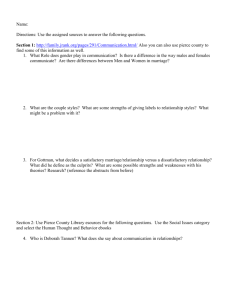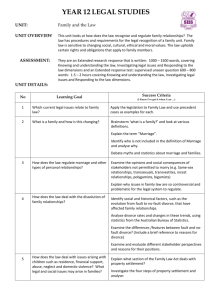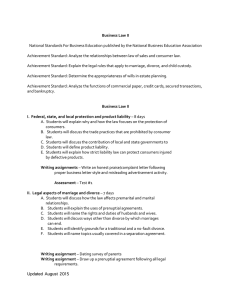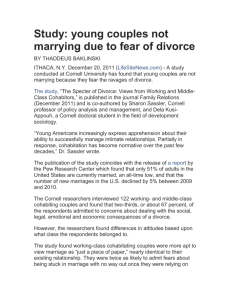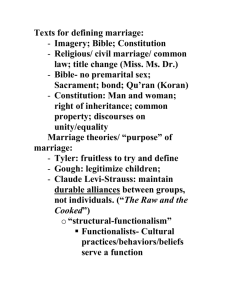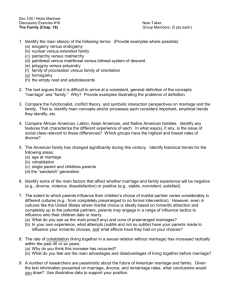Marriage
advertisement
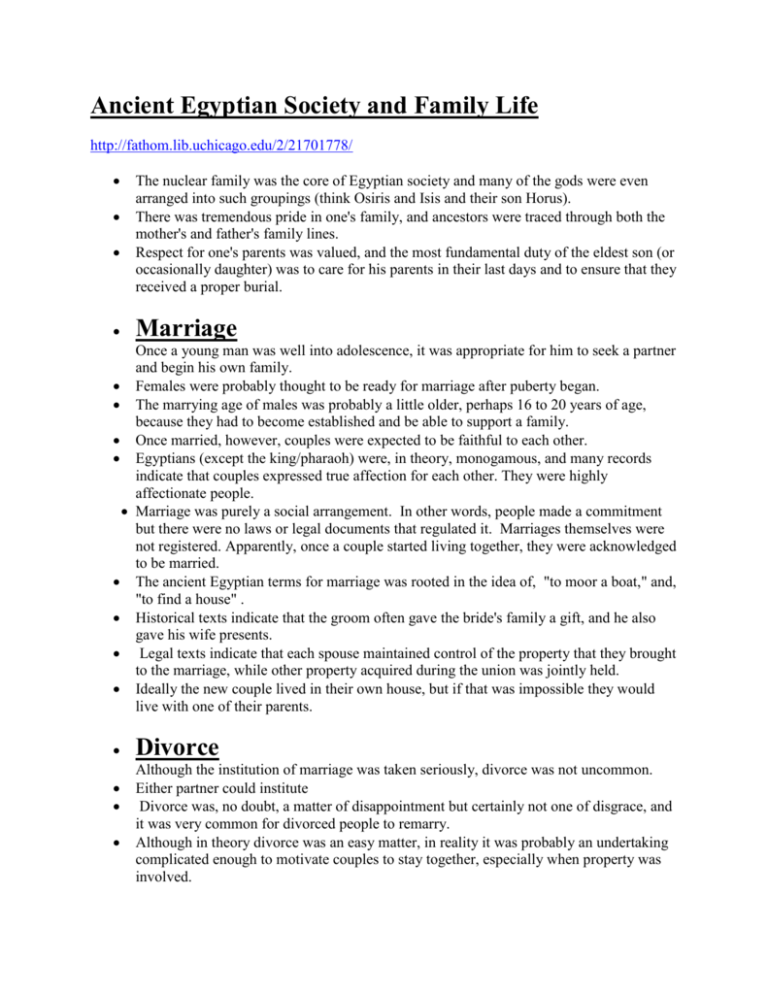
Ancient Egyptian Society and Family Life http://fathom.lib.uchicago.edu/2/21701778/ The nuclear family was the core of Egyptian society and many of the gods were even arranged into such groupings (think Osiris and Isis and their son Horus). There was tremendous pride in one's family, and ancestors were traced through both the mother's and father's family lines. Respect for one's parents was valued, and the most fundamental duty of the eldest son (or occasionally daughter) was to care for his parents in their last days and to ensure that they received a proper burial. Marriage Once a young man was well into adolescence, it was appropriate for him to seek a partner and begin his own family. Females were probably thought to be ready for marriage after puberty began. The marrying age of males was probably a little older, perhaps 16 to 20 years of age, because they had to become established and be able to support a family. Once married, however, couples were expected to be faithful to each other. Egyptians (except the king/pharaoh) were, in theory, monogamous, and many records indicate that couples expressed true affection for each other. They were highly affectionate people. Marriage was purely a social arrangement. In other words, people made a commitment but there were no laws or legal documents that regulated it. Marriages themselves were not registered. Apparently, once a couple started living together, they were acknowledged to be married. The ancient Egyptian terms for marriage was rooted in the idea of, "to moor a boat," and, "to find a house" . Historical texts indicate that the groom often gave the bride's family a gift, and he also gave his wife presents. Legal texts indicate that each spouse maintained control of the property that they brought to the marriage, while other property acquired during the union was jointly held. Ideally the new couple lived in their own house, but if that was impossible they would live with one of their parents. Divorce Although the institution of marriage was taken seriously, divorce was not uncommon. Either partner could institute Divorce was, no doubt, a matter of disappointment but certainly not one of disgrace, and it was very common for divorced people to remarry. Although in theory divorce was an easy matter, in reality it was probably an undertaking complicated enough to motivate couples to stay together, especially when property was involved. Egyptian women had greater freedom of choice and more equality under social and civil law than women in Mesopotamia or even the women of the later Greek and Roman civilizations. Her right to initiate divorce was one of the ways in which her full legal rights were upheld. Additionally, women could serve on juries, testify in trials, inherit real estate, and disinherit ungrateful children.
